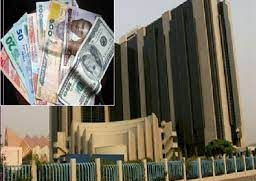Ahead of the two-day Monetary Policy Committee meeting of the Central Bank of Nigeria commencing on Monday (today), financial experts have expressed diverse views on possible outcomes of the rates. The CBN disclosed it would hold its 289th meeting in Abuja.
Experts and researchers at Cordros Securities expect a rate hike after the meeting, saying we ‘MPC to favour smaller rate hikes in the short-term.’
In a report, they stated, “Elsewhere, the prospect of global central banks embarking on smaller interest rate hikes could also influence the MPC’s decision to toe the same line amid concerns about the domestic economy. Thus, we expect the MPC to opt for smaller rate hikes in the short-term, given the build-up of pressures in the local economy and as the risks of over-tightening come to the forefront of policy discussions. Consequently, we expect the committee to increase the MPR further by 50bps – 100bps and retain other policy parameters.”
According to the report, the committee remains faced with either maintaining its hiking cycle or keeping policy parameters unchanged.
It added, “Therefore, we expect the committee to assess the domestic and global economic environment in the context of developing key economic and financial indicators since its last policy meeting in November. In our view, the MPC is likely to be concerned about the pressure on the domestic economy, given the slow growth recorded in Q3, 22022, more so that the manufacturing sector posted its first contraction since Q4, 2020.
“Moreover, inflationary pressures remain intact, although the slight ease in December will likely be welcomed among the committee members.”
However, a professor of Capital Market and Chairman Chartered Institute of Bankers of Nigeria, Abuja Branch, Prof Uche Uwaleke, said the MPC would likely keep all the monetary policy parameters when the members meet this week.
He attributed this to two reasons.
He said, “One, historical evidence suggests that the MPC rarely adjusts policy rates in January due to the need to allow the markets to stabilise in the New Year.
Secondly, inflationary pressure is beginning to reduce as seen in headline inflation numbers for the month of December 2022 not only in Nigeria but also in the US.
I do not advise a further hike in MPR, as doing so beyond the current high rate of 16.5 per cent is capable of jeopardising economic growth.



